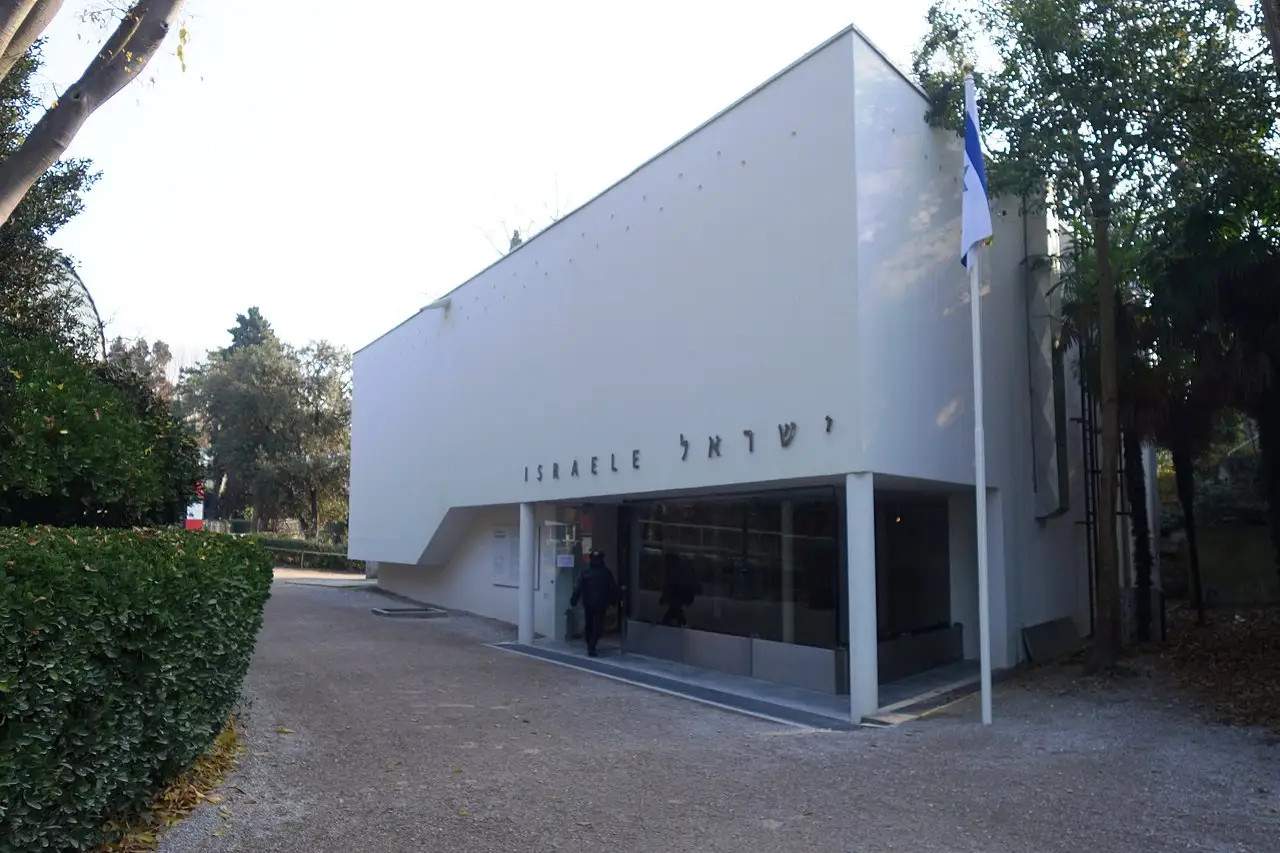A letter asking the Venice Biennale to exclude Israel from national participation: thousands of artists, curators, professors and people more or less connected to the art world have signed it. The basic thesis of the group, which has renamed itself “Art Not Genocide Alliance” (ANGA) is that Israel is perpetrating genocide against Palestinians in Gaza, consequently the Biennale organization is asked to exclude the Israel Pavilion.
The ANGA group writes in the letter that “the world’s highest court, the International Court of Justice, has affirmed that Israel is plausibly committing genocide against the Palestinians in Gaza.”(Actually Order 192 of Jan. 26, 2024 the Court, which orders Israel to prevent any act falling within the scope of the Genocide Convention, is more nuanced: at paragraph 30, it states that “at the present stage of the proceedings it is not required to ascertain whether violations of Israel’s obligations under the Genocide Convention have occurred,” and that the examination of whether Israel has violated its obligations is postponed to the merits stage, although, at paragraph 54, the Court finds that the facts and circumstances are sufficient to conclude that certain rights asserted by South Africa, which brought the ’action against Israel, are “plausible”-namely, the right of Palestinians in Gaza to be protected from acts of genocide and South Africa’s right to seek Israel’s compliance with its obligations under the Convention), and that Israel’s leaders “proclaim that they are above international law and boldly publicize their genocidal intent.”
The Biennial, the missive continues, “was modeled on the Eurocentric World Expo and retains these geopolitical biases. Calls for recognition of the atrocities committed by its participants are not, however, unprecedented. From 1950 to 1968, due to widespread global condemnation and calls for a boycott, apartheid South Africa was discouraged from exhibiting and sidelined when the Biennale allocated spaces. In 1968, based on UN Resolution 2396, an official ban was introduced to suspend ’trade with the racist regime.’ South Africa was not readmitted until the abolition of the apartheid regime in 1993.”
The petitioners also recall the precedent of 2022, when, on the occasion of theRussian invasion of Ukraine, the Biennale and its curator issued public statements in support of the Ukrainian people’s right to self-determination, freedom and humanity. At that juncture, the Biennial condemned Russia for its aggression and rejected, in an official statement, “any form of collaboration with those who carried out or supported such a serious act of aggression” and “the presence at any of its events of official delegations, institutions or persons linked in any capacity to the Russian government.” Even before the condemnation came, however, it was the artists and the curator of the Russian pavilion who voluntarily withdrew from that edition of the Biennale, during which the Russia pavilion remained closed.
In any case, according to the petitioners, this time “The Biennale has remained silent about Israel’s atrocities against the Palestinians. We are shocked by this double standard. The Israeli assault on Gaza constitutes one of the most intense bombings in history. By the end of October 2023, Israel had dropped tons of explosives on Gaza with a power equal to that of the nuclear bomb dropped on Hiroshima, Japan, in 1945. In January 2024, it was reported that the daily death rate in Gaza exceeds that of any other major conflict in the 21st century. The curators and artists of the Israeli pavilion made a simplistic statement about the need for art in dark times, insisting on ’a pocket for free expression and creation in the midst of all that is happening.’ Another double standard.”
Art, the ANGA group argues, “is not born in a vacuum and cannot transcend reality. Euphemisms cannot erase violent truths. Any work that officially represents the State of Israel constitutes an endorsement of its genocidal policies. There is no free expression for Palestinian poets, artists and writers who have been murdered, silenced, imprisoned, tortured and prevented from traveling abroad or within Israel. There is no freedom of expression in Palestinian theaters and literary festivals closed by Israel. There is no freedom of expression in the museums, archives, publications, libraries, universities, schools and homes in Gaza bombed and reduced to rubble by Israel. There is no freedom of expression in the war crime of cultural genocide. As the Israeli pavilion moves forward, the death toll of genocide in Gaza and the West Bank increases daily. As the Israeli curatorial team designs its ’Fertility Pavilion’ reflecting on contemporary motherhood, Israel has killed more than 12,000 children and destroyed access to reproductive care and medical facilities. As a result, Palestinian women are having C-sections without anesthesia and giving birth in the streets.”
“Any official representation of Israel on the international cultural stage,” the letter concludes, “is an endorsement of its policies and genocide in Gaza.” There are currently 8,730 signatories to the letter, including many well-known names in Italian and international art. They include Nan Goldin, Mike Parr, Brian Eno, Tai Shani, Jesse Darling, Ingela Ihrman , and then there is also the director of the Van Abbemuseum in Eindhoven, Charles Esche, while Italians include Adelita Husni Bey, Rossella Biscotti, Andreco, Paolo Canevari, Cesare Petroiusti, and Diego Marcon.
At the moment, however, Israel’s presence at Biennale 2024 has not been questioned by the organizers, so on the list of national participations the Israel Pavilion is still there: the country will be represented by artist Ruth Patir in an exhibition curated by Mira Lapidot and Tamar Margalit.
Image: the Israel Pavilion at the Venice Biennale. Photo: Michael Jacobson
 |
| Thousands sign to ask Venice Biennale to exclude Israel |
Warning: the translation into English of the original Italian article was created using automatic tools. We undertake to review all articles, but we do not guarantee the total absence of inaccuracies in the translation due to the program. You can find the original by clicking on the ITA button. If you find any mistake,please contact us.